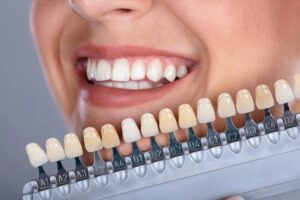
Oral contraceptives are like the Swiss army knives of women’s health—packed with tools that do everything from keeping pesky pregnancies at bay to adding some pizazz to your beauty routine. These little pills are not just a means to an end; they’re intricately woven into the tapestry of our health, influencing everything from asthma management to mental wellness. Buckle up as we dive into this rollercoaster ride through the glorious world of oral contraceptives!
In this whirlwind tour, we will explore how oral contraceptives impact health, lifestyle, and even medical contexts. From enhancing your skincare regimen to their surprising role in muscle building, these pills have a lot more to offer than you might think. So, grab a cup of coffee, sit back, and prepare to be amazed by the fascinating intersections between oral contraceptives and our everyday lives!
Impact of Oral Contraceptives on Health
Oral contraceptives, often hailed as a game-changer for reproductive health, bring along more than just the promise of preventing pregnancies. They can also play a significant role in various health aspects that might just surprise you. From managing asthma symptoms to influencing your mood and even affecting your smile, let’s dive into the multifaceted impact of these little pills.
Oral Contraceptives and Asthma Management
Interestingly, oral contraceptives have been found to impact asthma management in women. Research indicates that hormonal fluctuations can exacerbate asthma symptoms. However, some studies suggest that estrogen in birth control pills can actually help some women experience fewer asthma attacks. This connection is essential, especially since it suggests that for women with asthma, a little hormonal help can potentially mean breathing a bit easier.
Women using oral contraceptives may experience
Reduced inflammation
Estrogen’s anti-inflammatory properties can help minimize airway constriction.
Fewer exacerbations
Some women report fewer asthma flare-ups while on the pill.
Improved lung function
Hormonal regulation could lead to enhancements in overall lung performance.
Oral Contraceptives and Mental Health
When it comes to mental health, oral contraceptives take center stage in a rather complex performance. While some women find relief from menstrual-related mood swings, others may experience heightened feelings of depression. The relationship between hormones and mood is so intertwined that it can feel like a soap opera—full of twists, turns, and unexpected outcomes.
Key points to consider
Hormonal fluctuations
The estrogen and progestin in contraceptives can lead to mood changes, sometimes increasing susceptibility to depression.
Personalized effects
Individual experiences vary widely; for some, the pill can stabilize mood, while for others, it may worsen it.
Clinical studies
Some studies suggest a correlation between certain types of oral contraceptives and increased risk of depressive symptoms, highlighting the importance of personalized medical advice.
Oral Contraceptives and Dental Health
You might not immediately think of oral contraceptives when considering dental health, but here’s a plot twist! Hormonal changes can affect gum health. Women taking birth control might experience various oral side effects, making regular dental check-ups essential.
Potential impacts include
Gingivitis
Increased hormone levels can lead to swollen, bleeding gums, a condition known as pregnancy gingivitis.
Dry mouth
Hormonal contraceptives can affect saliva production, leading to dry mouth, which increases the risk of cavities.
Sensitivity
Changes in hormones may also heighten tooth sensitivity, causing discomfort when consuming hot or cold beverages.In summary, the impact of oral contraceptives extends far beyond their primary purpose, touching upon areas like asthma management, mental health implications, and even dental well-being. Each woman’s experience with the pill can vary widely, making it essential to approach oral contraceptive use with informed care and consideration.
Oral Contraceptives and Lifestyle Factors

Oral contraceptives, often the unsung heroes of women’s health, don’t just work behind the scenes to prevent unintended pregnancies; they also have a significant role in shaping beauty routines, fitness goals, and even childhood health. Let’s put on our best lab coats and take a playful yet informative dive into how these tiny tablets influence various lifestyle factors.
Influence on Beauty Routines and Skincare Regimens
Oral contraceptives can be a game-changer in the world of skincare, transforming complexions from “meh” to “marvelous.” When estrogen levels are balanced, many women experience a reduction in acne and other skin woes, leading to a smoother canvas for makeup or a more confident bare face. The hormonal shifts can also promote healthier hair growth, making bad hair days a thing of the past.
It’s essential to note how these pills are not a magical cure-all, but they can help in several ways:
- Reduction in hormonal acne due to stabilized hormone levels.
- Improvement in skin tone and texture as estrogen can enhance collagen production.
- Potential decrease in hair loss for some women, leading to a thicker mane.
- Less skin irritation and fewer breakouts, providing a boost to overall confidence.
Such transformations can make oral contraceptives feel like a beauty elixir, albeit one that requires a prescription!
Role in Muscle Building and Physical Fitness
When it comes to muscle building and physical fitness, oral contraceptives have a nuanced relationship with women’s bodies. While they can offer some benefits, the effects can vary significantly based on individual responses to hormones. Research suggests that oral contraceptives can influence body composition, primarily by affecting muscle mass and fat distribution. For women aiming to build muscle, understanding this relationship is critical:
- Some studies show that estrogen may promote muscle growth, potentially giving those on the pill a leg-up (or a bicep-up) in strength training.
- Conversely, certain formulations of oral contraceptives might lead to changes in metabolism or appetite, influencing fitness outcomes.
- The timing of workouts may also play a role, as hormonal fluctuations throughout the menstrual cycle can impact energy levels and recovery.
Incorporating oral contraceptives into a fitness plan requires consideration of these factors, but with the right strategies, women can optimize their workouts for maximum gains.
Efficacy in Preventing Childhood Obesity in Adolescent Girls
Oral contraceptives might not be the first thought when discussing childhood obesity, but their impact on adolescent girls is significant. Research indicates that hormonal balance can play a role in regulating appetite and metabolism, which can indirectly influence weight management during crucial growth periods. Consider the following points:
- Preventing unplanned pregnancies allows adolescent girls to focus on education and health, reducing stress-related eating.
- Adequate hormonal regulation may lead to healthier body weight by helping to manage insulin sensitivity and metabolic rates.
- Access to oral contraceptives can encourage discussions about body autonomy and health, fostering healthier lifestyle choices early on.
While oral contraceptives are not a silver bullet for preventing childhood obesity, they certainly play a supportive role in the broader context of health education and well-being for adolescent girls.
Oral Contraceptives in Medical Contexts

Oral contraceptives (OCs) have transcended their primary function of preventing unplanned pregnancies to find relevance in various medical settings. While they are a staple in gynecological care, their implications extend into critical care, cosmetic surgery, and even developmental health discussions. Understanding these contexts can shed light on the diverse effects of OCs and the careful considerations that healthcare providers must undertake.
Use of Oral Contraceptives in Critical Care Settings
The use of oral contraceptives in critical care settings is often a complex dance between benefits and potential complications. While OCs can regulate menstrual cycles and provide hormonal balance, they can also increase the risk of thromboembolic events in certain patients. In critical care, the following points are noteworthy:
- Thromboembolic Risks: Patients on OCs may have heightened risk for deep vein thrombosis (DVT) or pulmonary embolism (PE), particularly when immobilized or if they have additional risk factors like obesity or smoking.
- Monitoring Needs: Effective monitoring for signs of clotting is paramount, requiring enhanced vigilance from the healthcare team.
- Drug Interactions: Certain medications used in critical settings can interact with OCs, leading to reduced contraceptive efficacy or altered hormonal effects.
“The key is to strike a balance between the benefits of hormonal regulation and the risks of complications.”
Impact of Oral Contraceptives on Cosmetic Surgery Patients
Cosmetic surgery patients often overlook how oral contraceptive use can affect their surgical outcomes. The interplay between OCs and surgical procedures raises several important factors that must be considered before going under the knife.The implications include:
- Wound Healing: Hormonal changes due to OCs can influence wound healing and recovery time, potentially complicating post-operative care.
- Bleeding Risks: Patients using OCs may experience variations in bleeding patterns, which can affect blood loss during surgery.
- Thromboembolic Events: As with critical care, the risk of thromboembolic complications also looms in cosmetic surgery, necessitating thorough pre-operative evaluations.
“Cosmetic surgeons must engage in detailed conversations with patients about their contraceptive use to ensure safety and optimal outcomes.”
Links Between Oral Contraceptives and Developmental Disabilities in Offspring
The relationship between oral contraceptive use during pregnancy and developmental disabilities in offspring remains a topic of significant interest and concern. Recent studies indicate that certain hormonal contraceptives may correlate with an increased risk of specific developmental conditions.Key considerations are:
- Timing of Use: The critical window during which OCs are used before conception can influence developmental outcomes, and ongoing research aims to clarify these timelines.
- Types of Contraceptives: Different formulations of OCs may have varying effects, with some studies suggesting a link between specific types and increased risk of autism spectrum disorders.
- Genetic and Environmental Factors: It’s essential to consider that genetics and environmental exposures also play significant roles in developmental outcomes, complicating the direct association with OCs.
“Understanding the multifaceted influences of oral contraceptives is crucial in guiding reproductive health decisions.”
Final Summary
In conclusion, oral contraceptives are more than just a birth control option; they are a multifaceted ally in the quest for health, beauty, and personal empowerment. Whether you’re considering their role in mental health or their unexpected influence on fitness, these pills certainly pack a punch! So, next time someone mentions oral contraceptives, you’ll know they’re not just a medical marvel but also a lifestyle trendsetter—which is a pretty impressive resume for a tiny tablet!
Questions Often Asked
Can oral contraceptives help with acne?
Yes, some oral contraceptives can improve acne by regulating hormones that cause excess oil production.
Do oral contraceptives affect weight?
While some users report weight gain, studies show that most women don’t experience significant weight changes while on the pill.
Can I take oral contraceptives while smoking?
It’s generally advised to avoid combining smoking with oral contraceptives due to increased risks of blood clots, especially in women over 35.
How long does it take for oral contraceptives to work?
Most oral contraceptives take about 7 days to become effective, but it’s best to consult with a healthcare provider for specifics.
Are there any side effects of oral contraceptives?
Yes, possible side effects include nausea, headaches, and mood changes, although many women tolerate them well.





